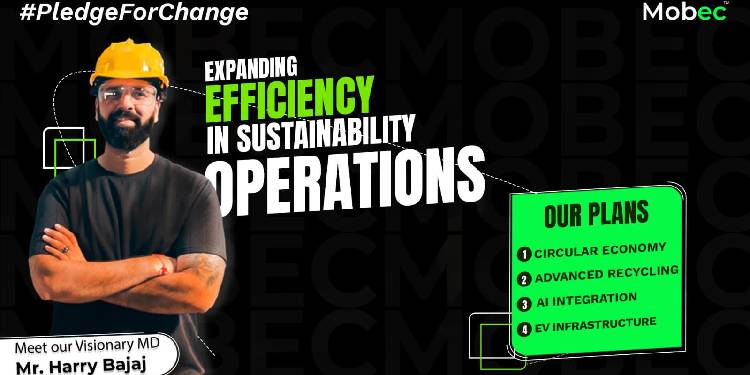MUMBAI: Mobec, a EV charging solutions’ provider, has launched its #PledgeForChange campaign. This initiative aims at accelerating EV adoption, sustainability, and circular economy practices in 2025. The campaign aligns with the Delhi Government’s recent extension of its Electric Vehicle (EV) Policy until March 2025, a move that reaffirms the city’s commitment to reducing air pollution and promoting clean transportation.
Mobec said that it strongly supports this policy extension, recognising it as a vital step toward a cleaner and greener future. The #PledgeForChange campaign looks to reflect Mobec’s dedication to addressing the EV ecosystem’s challenges and enhancing sustainable mobility solutions.
In the past year, Mobec has spearheaded multiple initiatives to try and revolutionise the EV sector. The company launched portable, fast-charging solutions, eliminating EV range anxiety and making charging accessible across diverse regions. Mobec also introduced large-scale Energy Storage Systems (ESS), offering energy efficiency beyond EVs for broader applications.
To minimise waste, Mobec implemented its Battery Second Life programme, refurbishing used EV batteries for less demanding applications. Additionally, advanced Black Mass Reduction techniques allowed Mobec to recycle batteries into reusable raw materials like lithium, cobalt, and nickel, contributing to the circular economy. By prioritising recyclable materials, Mobec significantly reduced mining dependency and environmental pollution.
Future Commitments
Under #PledgeForChange, Mobec is expanding efforts in key areas to further sustainability:
Circular Economy: Increasing the use of recycled materials in production to reduce resource depletion.
Advanced Recycling: Scaling black mass recycling operations to recover valuable metals and lower the environmental impact.
AI Integration: Using artificial intelligence to optimise recycling processes and improve efficiency.
EV Infrastructure: Introducing innovative charging and storage solutions aligned with the government’s sustainability goals.
While the EV sector has seen notable advancements, including record EV sales and improved infrastructure, significant challenges remain in scaling infrastructure and achieving cost efficiency. Mobec’s initiatives align with India’s 2030 sustainability goals, including 30% EV penetration, net-zero carbon emissions in transportation, and reduced air pollution in urban areas.
Harry Bajaj, CEO, founder Mobec said, “The extension of the Delhi EV Policy is a demonstration to the government’s dedication to sustainability. At Mobec, we believe collaboration between policymakers, industry leaders, and consumers is essential for a truly green future. The #PledgeForChange campaign embodies our commitment to innovation and sustainability.”
Mobec’s #PledgeForChange campaign is an invitation for individuals, businesses, and policymakers to unite for a sustainable tomorrow. By advocating for circular economy practices, investing in recycling, and fostering EV adoption, Mobec aims to transform India’s mobility sector.

















